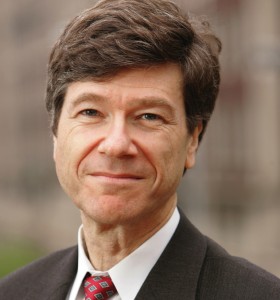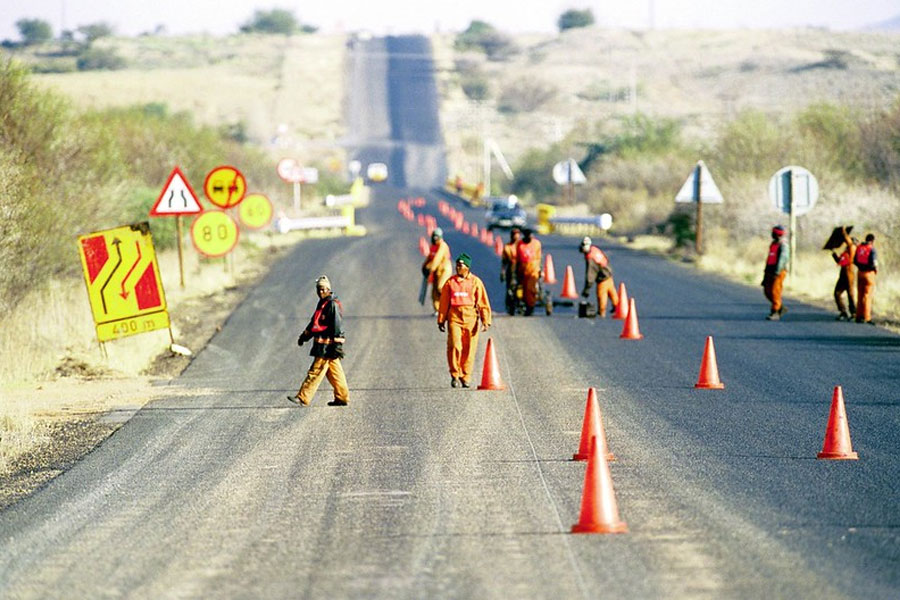
Commentaries | Nov 09,2024
Oct 23 , 2021
By Jeffrey D. Sachs
The philosopher Immanuel Kant famously said that, “Whoever wills the end also wills…the indispensably necessary means to it that is in his control.” Put simply, when we set a goal, we ought to take the actions needed to achieve it. This is an essential maxim for our governments, and it should guide G20 leaders when they meet in Rome at the end of October to confront the climate crisis.
The world set a goal in the Paris climate agreement: to keep global warming within 1.5 degrees Celsius of pre-industrial levels. The Intergovernmental Panel on Climate Change has explained why this is a valid goal. To go higher than 1.5 degrees Celsius would jeopardise life on the planet with a potential multi-meter rise of sea level, the collapse of critical ecosystems, and the release of methane from thawing permafrost, possibly triggering runaway warming. Yet the world’s current trajectory implies a catastrophic 2.7 degrees Celsius increase in global temperature.
Earlier this year, the International Energy Agency showed the technological pathway to achieve the 1.5 degrees Celsius target. We must decarbonise the world’s energy system by mid-century. This is feasible, by shifting from fossil fuels to renewable energy and green fuels in power generation, transport, buildings, and industry. Beyond that, we also need to stop deforestation and restore degraded land on a massive scale.
Thus far, governments are failing miserably to do their part. In the inimitable words of Greta Thunberg, they need to move beyond “Blah, blah, blah.” They must will the means to decarbonisation.
First, governments need to plan the energy system and land-use changes to mid-century. With just 28 years left to 2050, and facing the need for a massive overhaul of energy systems and land-use practices, governments must plan the necessary public investments and policies. And they must gain acceptance and support for those plans by subjecting them to public scrutiny, debate, and revision.
Second, governments must regulate. As the IEA wrote clearly in its report, there is no need or justification for new fossil-fuel investments. Period. We have enough proven fossil-fuel reserves. No country should get a pass on ending the new exploration and development of fossil fuels.
Third, governments must finance – at scale – zero-carbon infrastructures, such as national and regional renewable-energy power grids (for example, linking the European Union, North Africa, the Eastern Mediterranean, and the Middle East), as well as electrification of transport and buildings.
Fourth, rich-country governments must help finance poorer countries’ efforts to make the needed investments. Rich countries have long promised to do this, but have failed to mobilise even the rather pitiful 100 billion a year – a mere 0.1pc of world output – they first pledged in 2009.
Fifth, developed countries should compensate the developing world for the climate damages they have already wrought and which will intensify in the future. The United States has emitted a quarter of carbon dioxide emissions dating back to 1751, despite having less than five percent of the global population. Countries all over the world are suffering massive climate disasters as a result of US energy malfeasance. Yet the US and other major historical emitters have offered nothing in compensation for the damages they are causing.
Lastly, the world’s rich people, responsible for the preponderance of fossil-fuel use in their own countries and on a global scale, need to pay their fair share of the costs of climate adjustment. Yet, by and large, the richest people escape fair taxation, as shown once again in the Pandora Papers and a ProPublica report on tax avoidance.
There is some good news. Many governments are taking some steps in the right direction. The EU is in the lead, with the European Green Deal, which pledges the EU to achieve net-zero emissions by 2050. Japan and South Korea have also pledged to reach net-zero by 2050, and President Joe Biden is trying to bring the US in line. China, Indonesia, and Russia have set a net-zero target of 2060, which is heartening but can and should be accelerated.
Yet major emitters such as Australia, India, and Saudi Arabia have not made any such pledge, and the US is showing signs of another massive political failure to tackle climate change, despite Biden’s efforts. Since ratifying the UN Framework Convention on Climate Change in 1992, the US Senate has blocked any action to implement the treaty and the Paris climate agreement.
This track record of world-threatening inaction now looks set to continue. In the past few days, the US Senate has been busy gutting Biden’s signature budget legislation of its most important climate policies. All 50 Republican Senators and a handful of Democrats led by Joe Manchin of West Virginia are opposing Biden’s “clean-power plan” to decarbonise the US energy sector.
The remarkable thing about American corruption is how blatant it is. The oil and gas industry spent 140.7 million dollars on the 2020 elections (donating 84pc to Republicans) and 112 million dollars on lobbying last year. An ExxonMobil lobbyist was recorded confiding that Manchin is the industry’s “kingmaker” in Congress. Biden’s hold on power is so weak, and the corruption of the US Congress so entrenched, that the president cannot even face down a small-state senator from his own party, who should be shamed and derided for his devotion to Big Oil.
The G20 governments have a moral imperative to adopt the means to achieve the globally agreed goal of climate safety. Their countries account for roughly 80pc of global output and CO2 emissions. An agreement among these governments – followed by specific actions, including facing down the corruption in their own countries – can change the global trajectory on climate change.
Many G20 governments are ready to act, and they should call out the laggards. The US should be put on notice that America’s failed response is intolerable to the rest of the world. And the same message should be conveyed to Australia, India, and Saudi Arabia. There can be no tolerance for climate corruption and impunity in a world on fire.
PUBLISHED ON
Oct 23,2021 [ VOL
22 , NO
1121]


Commentaries | Nov 09,2024

Radar | Dec 10,2018

Viewpoints | Aug 06,2022

Featured | May 11,2019

Fortune News | Jan 01,2022

Fortune News | Dec 21,2019

Commentaries | Nov 30,2024

Viewpoints | Dec 04,2021

Commentaries | Apr 26,2025

View From Arada | Jun 17,2023

My Opinion | 131970 Views | Aug 14,2021

My Opinion | 128359 Views | Aug 21,2021

My Opinion | 126297 Views | Sep 10,2021

My Opinion | 123913 Views | Aug 07,2021

Dec 22 , 2024 . By TIZITA SHEWAFERAW
Charged with transforming colossal state-owned enterprises into modern and competitiv...

Aug 18 , 2024 . By AKSAH ITALO
Although predictable Yonas Zerihun's job in the ride-hailing service is not immune to...

Jul 28 , 2024 . By TIZITA SHEWAFERAW
Unhabitual, perhaps too many, Samuel Gebreyohannes, 38, used to occasionally enjoy a couple of beers at breakfast. However, he recently swit...

Jul 13 , 2024 . By AKSAH ITALO
Investors who rely on tractors, trucks, and field vehicles for commuting, transporting commodities, and f...

Jul 5 , 2025
Six years ago, Ethiopia was the darling of international liberal commentators. A year...

Jun 28 , 2025
Meseret Damtie, the assertive auditor general, has never been shy about naming names...

Jun 21 , 2025
A well-worn adage says, “Budget is not destiny, but it is direction.” Examining t...

Jun 14 , 2025
Yet again, the Horn of Africa is bracing for trouble. A region already frayed by wars...

Jul 6 , 2025 . By BEZAWIT HULUAGER
The federal legislature gave Prime Minister Abiy Ahmed (PhD) what he wanted: a 1.9 tr...

Jul 6 , 2025 . By YITBAREK GETACHEW
In a city rising skyward at breakneck speed, a reckoning has arrived. Authorities in...

Jul 6 , 2025 . By NAHOM AYELE
A landmark directive from the Ministry of Finance signals a paradigm shift in the cou...

Jul 6 , 2025 . By NAHOM AYELE
Awash Bank has announced plans to establish a dedicated investment banking subsidiary...